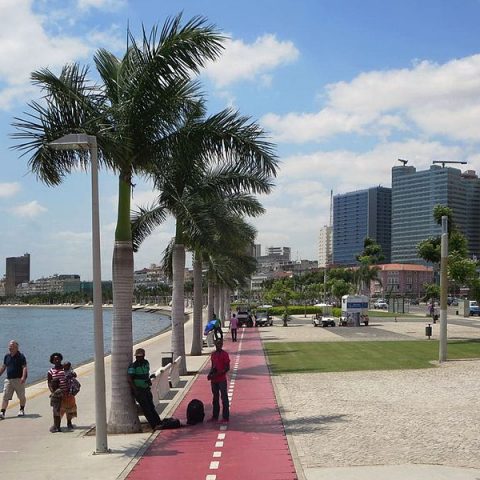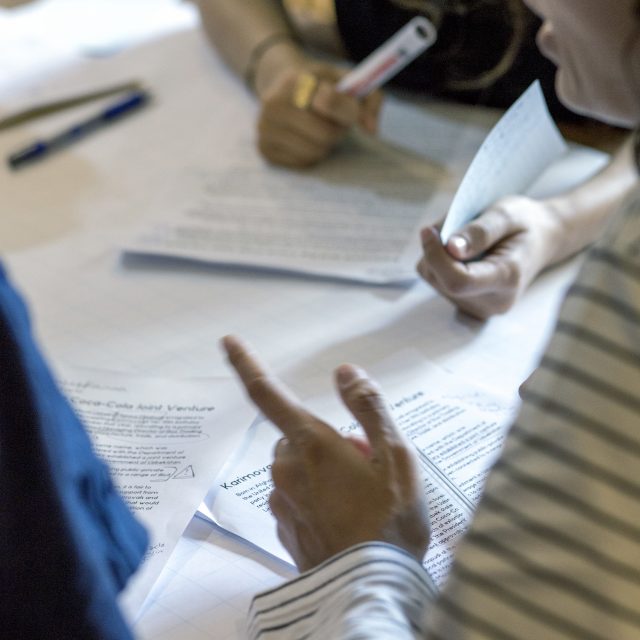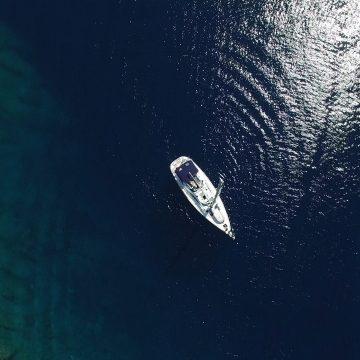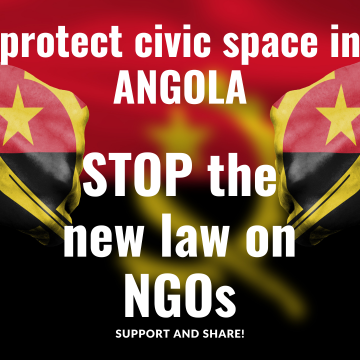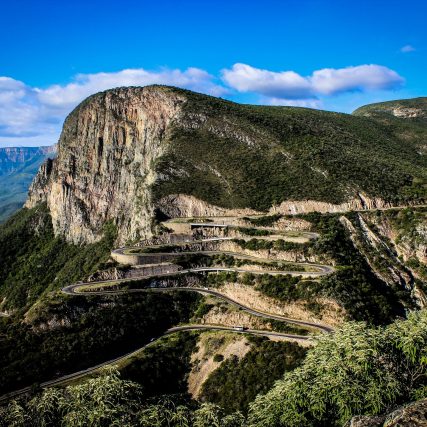Overview
Angola, Africa’s fifth largest economy, has made strides in pursuing its anti-corruption agenda. Under President Lourenço several cabinet ministers, provincial governors, senior military officers, and other high-level government officials were sacked and prosecuted due to alleged corrupt practices, while several new legal tools, such as the 2020 anti-money laundering and countering terrorism law aimed to strengthen the anti-corruption framework. Lourenço’s government also launched a legal battle against the family of former president Dos Santos – of which he was himself previously a close ally – and accused the former president of having stolen billions of dollars between 2002-2017. The Luanda Leaks, a large cross-border journalist investigation of 2020, revealed the extent to which the Dos Santos kleptocracy, and in particular the former president’s daughter Isabel Dos Santos, is alleged to have robbed Angola of billions through a business empire of over 400 companies spread over 40 countries. Some estimates put the figure of Angolan assets stolen between 2002 and 2017 at USD 100 billion.
Endemic corruption has long been a major challenge in the country. The oil and mining sector in Angola are considered particularly high-risk areas, as gifts and facilitation payments are a common practice of doing business. Although bribery, illicit enrichment and conflict of interest are criminalised by the Probity Law, such offenses have rarely been prosecuted.
In Angola, corruption is a very high risk when dealing with certifications, licenses, permits or other public services. Bribes and irregular payments in connection with public utilities are among the highest in the world. Local administration formally exists but is underfunded, politicised and inefficient to such an extent that the delivery of basic services such as water, electricity, health, and education is inadequate, especially in peri-urban neighbourhoods and rural areas. Law enforcement officers frequently supplement their income through coercion and solicitation of kickbacks from the public.
Asset recovery in Angola
As part of the recent anti-corruption campaign, the Angolan government boosted its efforts to recover the billions allegedly stolen during the Dos Santos era, with high-level officials’ arrests and indictments making world headlines in the past two past years. This has included the conviction of José Filomeno dos Santos, son of the ex-President and former chairman of the Sovereign Wealth Fund and the ex-governor of the National Bank of Angola Valter Felipe in August 2020 for money laundering, fraud and influence peddling relating to the transfer of USD 500,000 from the Angolan National Bank to a bank account in the UK; and, most notably, the indictment of Isabel dos Santos in January 2020 for several financial crimes, including influence peddling and money laundering.
Asset recovery reform
The government’s efforts to recover Angolan stolen assets has featured strengthening existing anti-corruption laws and institutions. The “Law of Repatriation of Financial Resources in Angola“, passed in 2018, is particularly relevant. The law allowed for the voluntary repatriation of Angolan assets held abroad in exchange for a tax exemption and amnesty from criminal charges related to assets not declared and outside Angola, so long as they were returned within 180 days of the promulgation of the law. It is worth noting that, according to reports, the voluntary disposition did not bring significant returns of illicit funds. The law however also establishes procedures to coercively repatriate assets held abroad “in the case of financial resources exclusively [obtained] from proven illegal operations” after the initial period of 180 days.
Under the same law, the National Asset Recovery Service, (Serviço Nacional de Recuperação de Activos, SRNA) was established in 2018. The SNRA is directed by the public prosecutor in the office of the Deputy Attorney General – who is in turn appointed by the president – and has a mandate to identify, locate, as well as seize physical and financial assets, whether transferred abroad or within Angola. Several other institutions playing an important role in combating money laundering and advancing asset recovery – including the Criminal Investigation Service, the Financial Intelligence Unit, and the State Administration’s Inspectorate – have been strengthened according to governmental authorities.
A 2020 law on “Combating money laundering and the financing of terrorism and proliferation, which includes, among other measures, increased scrutiny for politically exposed persons, integrates the abovementioned legislation in preventing and fighting grand corruption. Other relevant laws, already existing in the pre-Lourenço era, include the Public Contracting Law (2006), the Probity Law (2010) and several anti-money laundering laws.
As a result of reforms and increased investigation efforts, the Attorney General claimed in December 2020 that over USD 5 billion in cash, physical assets and businesses were recovered, with over 1,500 cases related to financial crime opened. Most progress has to date however been in domestic, rather than international, recovery.
Domestic recovery
The government´s recovery efforts have been particularly active at the domestic level. This has brought a number of notable asset freezes, including:
- In July 2020, the National Service on Assets Recovery, seized three private commercial buildings in Luanda built with funds from state-owned oil company Sonangol. The buildings belonged to the Riverstone Oaks Corporation, which is controlled by former vice president and president of Sonangol, Manuel Vicente, and the former director of Sonangol Real Estate and Properties, Orlando Veloso.
- In December 2019, the Luanda Provincial Court froze all in-country accounts and several assets owned by former first daughter Isabel dos Santos, her husband Sindika Dokolo, and businessman Mario Leite da Silva on suspicion that the assets, amounting to more than USD 1 billion, originated from state funds that were obtained unlawfully. Isabel dos Santos claimed that the seizure order was “politically motivated”.
- In December 2019, the Luanda provincial court pre-emptively froze assets belonging to Isabel Dos Santos and her associates at Unitel, the country’s largest mobile-phone company, and in Banco de Fomento Angola (BFA), one of the largest private banks. Consequently, the Angolan government filed criminal charges against Isabel dos Santos on suspicion of embezzlement of state funds while she was head of state-owned oil company Sonangol.
International recovery
The National Asset Recovery Service stated in 2020 that it had requested support from several foreign jurisdictions to freeze or seize Angolan assets, including Switzerland, the Netherlands, Luxembourg, Portugal, the United Kingdom, Singapore, Bermuda and others. As a result, bilateral discussions are ongoing to freeze and recover stolen assets in Switzerland, Mauritius, Portugal and the US and several asset freezes have been carried out.
Given the strong historical and economic ties between Angola and Portugal, the latter is considered a favoured destination of dirty money from Angola and asset recovery efforts have been particularly strong between the two countries. In early 2020, the Angolan government requested Portuguese authorities to freeze all known Dos Santos bank accounts. As a result, the Central Court of Criminal Investigation of Portugal ordered the seizure of all assets held in the country by Isabel dos Santos, which helped the country freeze over USD 2 billion in allegedly stolen assets. Although the decision did not stop Dos Santos from selling her shares to Portuguese companies, this was seen as an important step towards asset recovery. Reportedly, there seems to be some reluctance from the Portuguese side to fully comply with the request for judicial cooperation and discussions on the recovery and return of the assets in this case are still ongoing.
In July 2021, an international arbitration court in Netherlands ruled that Angolan oil company Sonangol must take back control of Isabel dos Santos’s 6% indirect stake – worth almost USD 500 million – which she had acquired in 2006 through the Portuguese oil company Galp Energia SGPS SA. According to the court the transfer had been “contaminated by illegality” and should be considered “null and void”.
In terms of asset returns, Angola was recently able to return assets from its sovereign wealth fund (Fundo Soberano de Angola), long chaired by one of President Dos Santos’ sons, which involved a total of USD 3.35 Billion in assets returned in 2019.
An older successful case linked to the so-called “Angolagate” involved two criminal investigations in 2004 and 2012 by Switzerland into alleged corruption and money laundering by Angolan officials. Assets worth USD 64 million were repatriated in 2012 and used to fund a number of humanitarian projects, which were agreed on between Switzerland and Angola, including reconstruction, health and sanitation units, improvement of public utilities and assistance to displaced populations. The case has been at times praised as best practice of social re-use of returned assets and successful intergovernmental cooperation.
International Institutional Engagement
A number of international institutions have been involved in promoting anti-corruption reform in the specific context of Angola, especially through the International Monetary Fund (IMF) and its key member governments. In particular, an agreement was signed in 2009 between the Angolan government and the IMF to foster greater accountability over the use of oil revenues. In principle, the agreement included full disclosure and declaration of the government’s oil revenues, a public audit of Sonangol, and an audited account of public expenditures. While the agreement did not fully include such requirements, especially with regard audit of government expenditures, it highlighted a commitment to publish an audit of Sonangol. In addition, the government has also made significant progress in terms of the disclosure of oil revenues.
Angola was removed from the blacklist of high risk money laundering countries in 2016 as a result of AML reform efforts to comply with FATF recommendations. The country has not been in the FATF monitoring process since. Angola is also a member of the regional asset recovery agency network ARIN-SA.
Our work in Angola
Our Work in Angola
In Angola, only a few CSOs are specifically engaged in anti-corruption reform and capacity is lacking in work on assisting the freezing, seizure and confiscation of stolen assets. Very few CSOs have been consistent in addressing asset recovery in their communications and advocacy efforts. This is compounded by shrinking civic space, which is a real threat in Angola, and a widespread lack of transparency in the investigation and management of recovered assets. The independence of the judiciary is a further challenge.
Taking the overall context in account, our work in Angola started in 2021 with a clear focus on reaching out and partnering with key Angolan NGOs willing to become stronger actors in asset recovery and in creating government momentum for boosting asset recovery nationally.
Our main goal is to assist the incorporation of asset recovery into the work of CSOs, bearing in mind the complexities involved in general and specifically in Angola. We work with CSOs to understand case scenarios, and to carefully assess their capacities to assist the State both in investigating stolen assets and in managing returned assets.
In order to achieve it, we are focused on:
- promoting a national civil society asset recovery strategy based on coalition building, training and awareness raising;
- supporting civil society and policy makers in better understanding the key challenges and reforms needed in the Angolan asset recovery framework;
- strengthening dialogue between CSOs and key institutions for ensuring transparency and accountability related to asset recovery;
- promoting knowledge and CSO strategic planning to advance international anti-corruption sanctions as a tool to advance asset recovery in Angola.
Current projects
Improving asset recovery frameworks in Kenya and East and Southern Africa
At the continental and regional level, many developments have been taking place in Africa around asset recovery. Not least of these is the recent development of the Common African Position on Asset Recovery. With this project, we want to build on CiFAR’s previous and current engagement in Kenya and in East and Southern Africa, aiming to increase the efficiency, transparency and accountability of asset recovery in the region.
Investigate East and Southern Africa
Starting in March 2023, we held the fifth instalment of our Investigate programme – East & Southern Africa. Open to English speaking applicants from East & Southern Africa and Europe, we aim with this combination to support journalists from these two regions in developing stories that are more in-depth and more cross-regional than ever before.
Strengthening Collaboration to Combat Kleptocracy
Addressing corruption and kleptocratic practices has grown in importance over the past decade, with jurisdictions across the globe introducing new legislative and policy tools designed to strengthen their response to the inflows of corrupt wealth. With this project, we aim to build on these achievements through: supporting strong cross-country and cross-continental partnerships between civil society engaged in combatting kleptocracy.
Further reading
Blogs
100 civil society organizations around the world in defense of Civic Space in Angola demand new law on NGOs to be withdrawn
100 civil society organizations worldwide signed a statement today against the “Estatuto das Organizações Não-Governamentais” (Status of non-governmental organisations), a new draft law regulating civil society in Angola presented by the government of João Lourenço.
Angola: From the Dos Santos recovery towards the future?
In mid-August, Angola was again in the news over the conviction of José Filomeno dos Santos, the ex-governor of Angola’s national bank and two others, for fraud and influence peddling relating to the transfer of USD 500,000 from the Angolan National Bank to a bank account in the UK.

